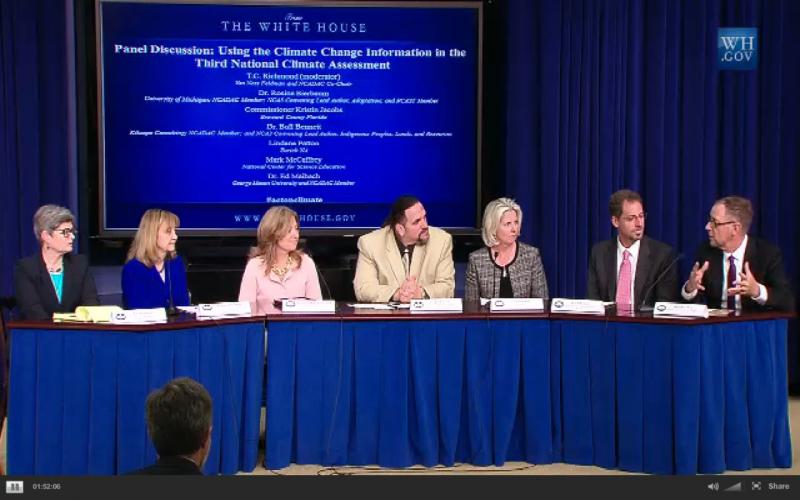
When NCSE started its climate change program just over two years ago, we encountered a lot of skepticism–but not from the usual suspects. We expected the climate change denial folks to argue that there was limited science behind climate change, so how could we advocate teaching of it? We also anticipated some concern among our faithful followers regarding our choice to expand beyond our original topic of evolution.
But some of the most unexpected questions actually came from the climate change community–folks who supported the science behind climate change. How could we waste time focusing on kids when there were politicians who needed arm-twisting and media outlets that needed fact-checking? Education takes too long, we were told, we need action now–and it wasn’t going to come from anyone under the age of 18.
This, of course, is nonsense. Groups such as the Alliance for Climate Education, the Will Steger Foundation, NASA, NOAA and many others, have demonstrated that an educated youth can be a powerful force of nature. But it's often difficult to get education on the table when there are adults in the room. There is sometimes fear that the ideas will be too complex, the implications too terrifying, the results too depressing to address with students.
So when my NCSE colleague Mark McCaffrey was invited to the White House for the May 6 rollout of the National Climate Assessment (NCA), we could not say “no”. With Mark’s invitation, students and educators were being invited to come to the table to talk about climate change, discuss opportunities, and figure out how the NCA can be used to create an educated population of adults–and future adults.
The NCA is an amazing treasure trove of information that some folks might find overwhelming at first. It has information on agriculture, energy, infrastructure, and even regional chapters. Almost any question you might pose about how climate change is impacting your region of the United States are answered by the NCA. But with each answer comes another question–and this is the best possible question to pose to kids–what can we do about it?
Rather than presenting climate change information in doomsday fashion, it can be brought to the classroom as an “opening of opportunities”. The NCA has a section on adaptation, another on mitigation, and any number of chances to connect scientific findings to engineering and ecosystem analyses.
The NCA's rollout may be the end of many months of work for those who wrote it, but for educators across the country it is the start of something that could be extremely powerful. As Mark said at the White House panel, there are many educational opportunities ahead but it'll take a lot of work to get there. It’s no longer just a question of who will stand up for the science–we need people to stand up for the students as well. NCSE is ready and willing. Are you?

